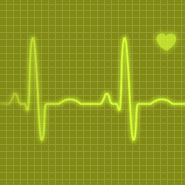
Noise pollution - when the din can make you ill
Noise pollution, especially in larger urban areas, can have a negative effect on health in a variety of ways, ranging from loss of sleep and mood swings to adverse effects on the ability to concentrate, hearing and the cardiovascular system.
Noise is just part of urban life. These days, city dwellers don't even notice the din created by trains and buses or the racket of restaurants, clubs and road construction; in other words, the varied combination of sounds that create noise pollution. The fact is that, according to recent medical studies, in general terms, noise pollution can damage human health in various different ways. These include sleep disturbances and mood swings, as well as lack of concentration and adverse effects on hearing and the cardiovascular system.
Waking up in a bad mood after a noisy night
Noise pollution reduces the amount of sleep one gets. If there are sounds outside or a neighbour is playing loud music in the middle of the night, it’s harder to fall asleep, and the deep sleep phase will be reduced too. Noise pollution not only affects the quality of sleep, but also how one feels on waking. You get out of bed in a bad mood more often, or at the very least feeling weary. The side effects of noise pollution can be limited by replacing doors and windows with sound-proof ones or insulating the walls with cork.
Noise pollution affects memory
Noise pollution can interfere with all those activities that require concentration, memory, and the capacity to deal with complex problems. The adjustments the brain makes in order to ignore the sound and the effort involved in maintaining cognitive function have been associated with an increase in blood pressure and stress.
Noise is bad for the school report
Many medical studies have shown that there is a direct link between noise and exam results, especially on reading ability. There is proof that suggests that children who live in areas with a high level of noise pollution and who attend schools close to busy roads and airports are at a disadvantage compared to children living in quieter areas. The only solution in this case would be to demand that local governments impose noise limits in certain neighbourhoods, like those around hospitals where honking of horns or listening to loud music isn't allowed, for example.
Noise pollution and hearing damage
There's more. Noise pollution can damage hearing, although the risk to the general public is negligible when levels are kept under 70 decibels over 24 hours. However, the threat of hearing loss must be taken seriously in night clubs where levels can exceed 100 decibels.
Excessive noise causes aggressive behaviour
There is mounting evidence that demonstrates the effect of noise pollution on the increase in cardiovascular illnesses such as stroke and hypertension. Noise pollution above 80 decibels is not only bad for the heart, but it also increases aggressive behaviour and reduces reflex actions in dangerous situations.









